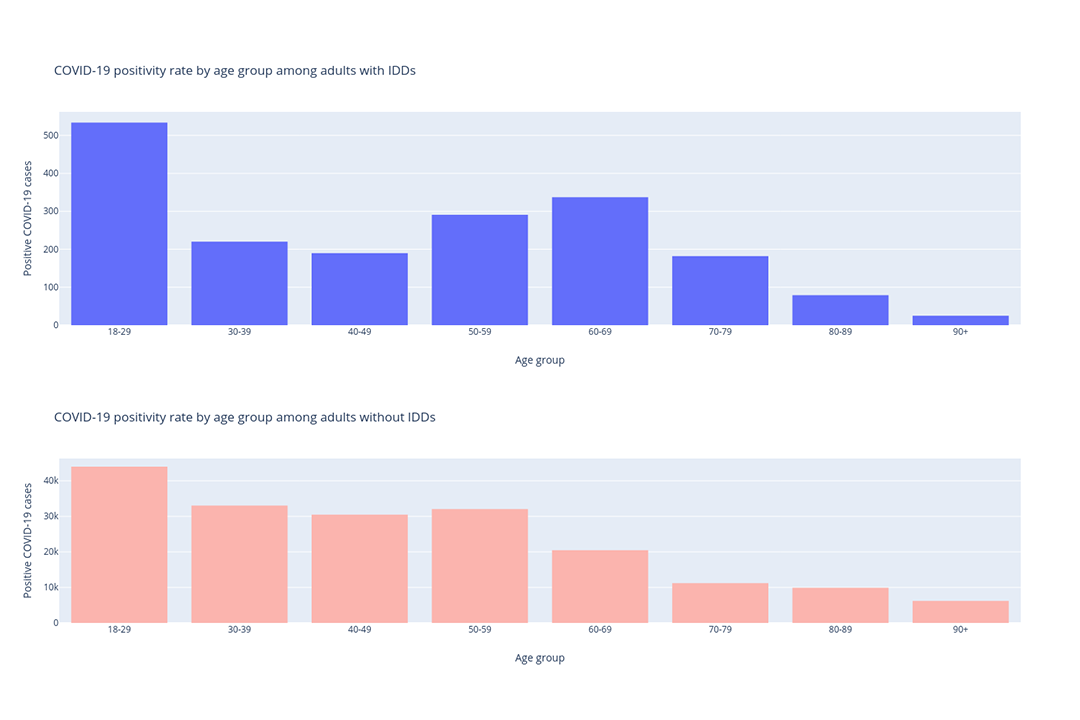When the SARS-CoV-2 virus first became a threat, Canada was one of the many countries that were quick to initiate a response to the increasing number of daily COVID-19 cases, especially during the first and second waves. As the third wave began, so did the vaccine rollout. Based on the greater risk of contracting the virus within some sections of the population and the severity of the disease, some population groups were given priority over others.
Although COVID-19 is a threat to everyone, whether they are vaccinated or not, it is a bigger threat to those with pre-existing diseases and disabilities. Individuals with intellectual developmental disabilities (IDD) such as cerebral palsy, fetal alcohol syndrome, and Down syndrome (DS) face an elevated risk of contracting the virus and being hospitalized.
Increased risk of infection
According to a recently published report by U of T professor Yona Lunsky, there may be substantial differences between the positivity rates of those with and without IDDs. Lunsky’s study found that while the positivity rate in adults with IDDs was relatively high, at about 19 per 1000 adults with IDD, the rate was even higher for those with DS, at about 21 per 1000 adults.
This may be because people with IDD and DS are at a disadvantage when combating the virus because they have weaker immune systems. They are also more prone to having other respiratory and autoimmune diseases such as type 1 diabetes, Alzheimer’s disease, and cerebral palsy, which ultimately increases the risk of intensive care unit hospitalizations and deaths.
Increased risk of complications
Additionally, in many individuals, DS can cause immune dysregulation, which leaves them more exposed to other diseases. After individuals with DS test positive for COVID-19, on top of the risk of having severe COVID-19 symptoms, they also have to take precautions to prevent getting other diseases. Lunsky wrote in an email to The Varsity that people with DS are “more susceptible to bacterial pneumonia, they have a unique profile of cardiovascular and cardiopulmonary disease,” adding that these health issues put them at greater risk of respiratory infections.
For people with DS, the risk doesn’t end even when they are hospitalized. Lunsky also wrote that in many instances, individuals are unable to “[describe] their own symptoms, which could delay them going to hospital.” She further explained how “health care providers less familiar with Down syndrome may also have some biases or attitudes that can impact the treatment they provide.”
In many cases, doctors, and healthcare professionals fear that they would not be able to take care of a patient because they are not aware of the patient’s medical history and do not want their actions to have adverse effects. At the same time, some people fear getting the right treatment because they are unaware of how it could affect them, as was the case at the Royal Melbourne Hospital in Australia, when a COVID-19 patient with DS refused to have oxygen tubes inserted to aid with her breathing. The nurses were eventually able to comfort her and convince her to have the tubes inserted by seeking external help from the children’s musical group The Wiggles.
Priority vaccination
Vaccinations for people with DS and other IDDs were a part of the second phase of vaccinations in Ontario, which began in April of 2021. Because of their additional risks associated with contracting the virus, people with DS were put under the high-risk category of people that began to receive vaccines starting on May 6, 2021.
Although the rollout was already slow, people, especially those with existing disabilities, were still hesitant to receive the vaccine because they were unaware of the side effects. To combat vaccine misinformation and encourage everyone to get vaccinated, organizations such as the Down Syndrome Association of Toronto and the Canadian Down Syndrome Society are running campaigns to advocate for prioritization of people with DS and similar IDDs. Lunsky wrote that it is also important for the university community “to include [people with DS] when [we] encourage family and friends to get vaccinated. And also to remember that protecting ourselves also protects them.”


